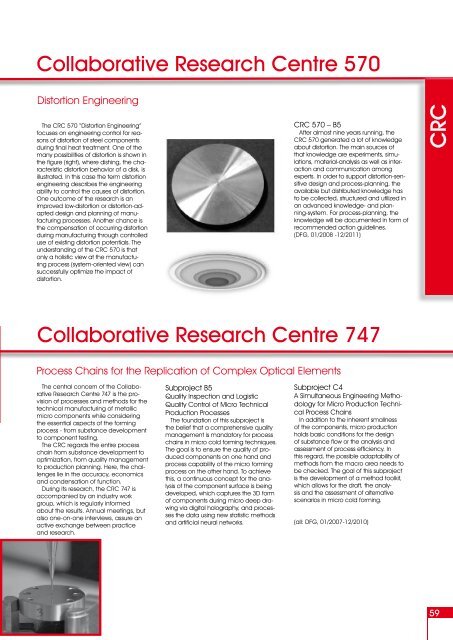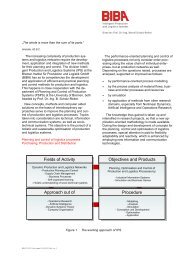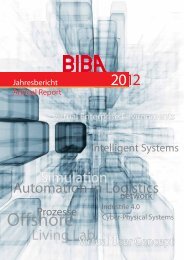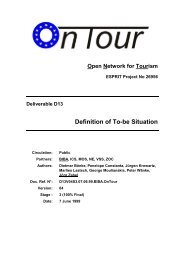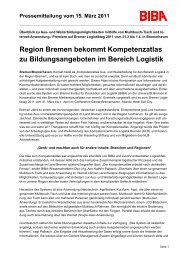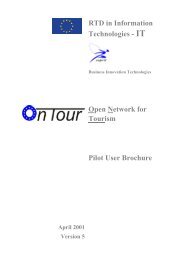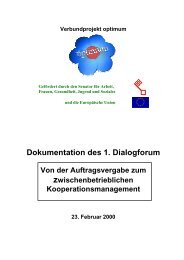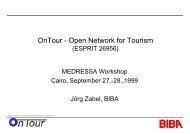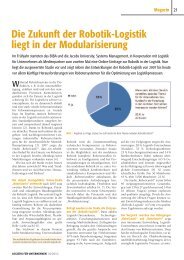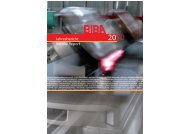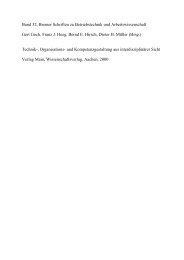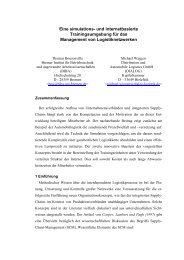Jahresbericht 2009 - Biba - Universität Bremen
Jahresbericht 2009 - Biba - Universität Bremen
Jahresbericht 2009 - Biba - Universität Bremen
Sie wollen auch ein ePaper? Erhöhen Sie die Reichweite Ihrer Titel.
YUMPU macht aus Druck-PDFs automatisch weboptimierte ePaper, die Google liebt.
Collaborative Research Centre 570<br />
Distortion Engineering<br />
The CRC 570 “Distortion Engineering”<br />
focuses on engineering control for reasons<br />
of distortion of steel components<br />
during final heat treatment. One of the<br />
many possibilities of distortion is shown in<br />
the figure (right), where dishing, the characteristic<br />
distortion behavior of a disk, is<br />
illustrated. In this case the term distortion<br />
engineering describes the engineering<br />
ability to control the causes of distortion.<br />
One outcome of the research is an<br />
improved low-distortion or distortion-adapted<br />
design and planning of manufacturing<br />
processes. Another chance is<br />
the compensation of occurring distortion<br />
during manufacturing through controlled<br />
use of existing distortion potentials. The<br />
understanding of the CRC 570 is that<br />
only a holistic view at the manufacturing<br />
process (system-oriented view) can<br />
successfully optimize the impact of<br />
distortion.<br />
Collaborative Research Centre 747<br />
Process Chains for the Replication of Complex Optical Elements<br />
The central concern of the Collaborative<br />
Research Centre 747 is the provision<br />
of processes and methods for the<br />
technical manufacturing of metallic<br />
micro components while considering<br />
the essential aspects of the forming<br />
process - from substance development<br />
to component testing.<br />
The CRC regards the entire process<br />
chain from substance development to<br />
optimization, from quality management<br />
to production planning. Here, the challenges<br />
lie in the accuracy, economics<br />
and condensation of function.<br />
During its research, the CRC 747 is<br />
accompanied by an industry work<br />
group, which is regularly informed<br />
about the results. Annual meetings, but<br />
also one-on-one interviews, assure an<br />
active exchange between practice<br />
and research.<br />
Subproject B5<br />
Quality Inspection and Logistic<br />
Quality Control of Micro Technical<br />
Production Processes<br />
The foundation of this subproject is<br />
the belief that a comprehensive quality<br />
management is mandatory for process<br />
chains in micro cold forming techniques.<br />
The goal is to ensure the quality of produced<br />
components on one hand and<br />
process capability of the micro forming<br />
process on the other hand. To achieve<br />
this, a continuous concept for the analysis<br />
of the component surface is being<br />
developed, which captures the 3D form<br />
of components during micro deep drawing<br />
via digital holography, and processes<br />
the data using new statistic methods<br />
and artificial neural networks.<br />
CRC 570 – B5<br />
After almost nine years running, the<br />
CRC 570 generated a lot of knowledge<br />
about distortion. The main sources of<br />
that knowledge are experiments, simulations,<br />
material-analysis as well as interaction<br />
and communication among<br />
experts. In order to support distortion-sensitive<br />
design and process-planning, the<br />
available but distributed knowledge has<br />
to be collected, structured and utilized in<br />
an advanced knowledge- and planning-system.<br />
For process-planning, the<br />
knowledge will be documented in form of<br />
recommended action guidelines.<br />
(DFG, 01/2008 -12/2011)<br />
Subproject C4<br />
A Simultaneous Engineering Methodology<br />
for Micro Production Technical<br />
Process Chains<br />
In addition to the inherent smallness<br />
of the components, micro production<br />
holds basic conditions for the design<br />
of substance flow or the analysis and<br />
assessment of process efficiency. In<br />
this regard, the possible adaptability of<br />
methods from the macro area needs to<br />
be checked. The goal of this subproject<br />
is the development of a method toolkit,<br />
which allows for the draft, the analysis<br />
and the assessment of alternative<br />
scenarios in micro cold forming.<br />
(all: DFG, 01/2007-12/2010)<br />
CRC<br />
59


